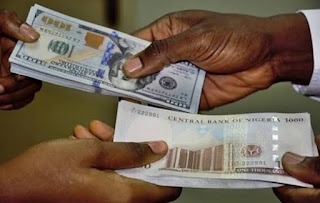Nigeria Market Witnesses Dramatic One-Third Drop in Value
The Central Bank of Nigeria has made a significant decision to permit a substantial drop of up to 36% in the value of the country's currency, the naira, on the official market. This move comes shortly after President Bola Tinubu suspended the central bank governor responsible for the controversial multiple exchange rates system. Nigeria has long grappled with foreign currency shortages exacerbated by these rates, hindering economic growth and investors' ability to extract funds.
Reports from traders indicate that trading restrictions on the official market have been lifted, causing the naira to reach a record low of 750 to the dollar, compared to the previous rate of 477 naira. This new rate aligns with the long-standing black market rate and marks the first significant drop in the official market since the introduction of a managed exchange rate in 2017.
Experts describe the currency devaluation as a much-needed correction to address overvaluation and improve the current account, creating a more favorable investment climate. President Tinubu's goal is to revitalize Nigeria's economy, which has been burdened by weak growth, mounting debt, and declining oil production. The removal of forex restrictions and subsidies on petrol were among his immediate priorities, receiving positive feedback from investors and economists.
While the central bank has yet to comment on the decision, the market has responded with enthusiasm. Nigeria's sovereign dollar bonds have surged, and the local banking index has reached a 20-year high following the suspension of the bank governor. The unification of the exchange rate and the elimination of distortions are expected to restore stability to the Nigerian currency in the coming weeks.




Comments
Post a Comment